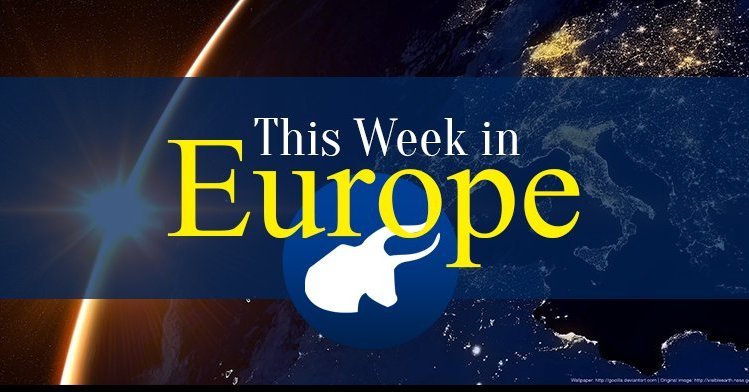EU divided on Jerusalem
On Thursday, the UN passed a resolution condemning the recognition of Jerusalem as Israel’s capital by the United States. Despite the huge majority, the abstentions of Croatia, the Czech Republic, Hungary, Latvia, Poland and Romania meant that the EU did not present a common position in the United Nations.
Austrian far right part of new government
The fruit of a coalition between the centre-right Austrian People’s Party (OVP) and the far-right Freedom Party (FPO), Austria’s new government, led by 31-year old Sebastian Kurz, has pledged a pro-EU stance, but that does not translate into friendlier stance to refugee or a less benevolent one toward Russia. The far-right FPO took control of the army, police and intelligence services through the ministry of the Interior, the ministry of Defence and the Foreign Ministry.
Estonia plans “estcoin”
The Baltic nation is considering launching its own virtual currency, called “estcoin”. The idea of an Estonian crypto-token came in August, and has been encouraged by the skyrocketing value of bitcoin. Despite criticism from Mario Draghi, the head of the European Central Bank, the tech-savvy Estonian authorities have prepared three “viable” plans for the launch of their own crypto-currency.
ECJ: Uber is a transport service
On Wednesday, the European Court of Justice ruled that the app connecting drivers and passengers amounts to a transport service and must, therefore, have the same permits and authorisations that national governments require of taxi services. The ruling is a setback to Uber, which hoped to be defined as a information service.
Poland becomes the first state to face article 7
On Wednesday, the European Commission triggered article 7.1 of the EU treaty against Poland over the rule of law. As a result, the Polish government has three months to suspend its judicial “reforms”. “The facts leave us no choice,” said Frans Timmermans, first vice-president of the commission. “The ruling majority can systematically interfere in the judiciary”, he added.
Denmark allows medicinal cannabis
With the approval of all parties in the Danish parliament, doctors in Denmark will be able to prescribe cannabis for the treatment of multiple sclerosis, spinal injury, chronic pain and to counter effects of chemotherapy. The new practice has been allowed to function on a 4-year trial basis.
Regional elections in Catalonia: mixed results
On Thursday, regional elections took place in Catalonia, and the results showed no certainty concerning the composition of the future government. The unionist party Ciudadanos won with 37 seats, whereas Carles Puigdemont’s independentist party arrived second with 34 seats, but the three independentist parties together have 70 seats, whereas the unionists only have 65 seats. The victory of the pro-independents is however not obvious, as their divisions make the formation of a government uncertain, and as Spanish Prime Minister Mariano Rajoy has already refused any negotiation with Carles Puigdemont.
The return of British blue passport: one more ridiculous and dishonest Brexiter argument
On Thursday, the British Home Office as well as Brexiter figures such as Nigel Farage proudly announced the return of the British blue passport as a so-called return of national sovereignty “thanks” to Brexit. The truth is that the EU has no legislation imposing a standardisation of burgundy passports (Croatia kept a blue passport for example), the British government itself made the choice to change the colour. Moreover, the former British blue passport was actually imposed by the League of Nations in 1920 (thus not really a symbol of national sovereignty). And ironically enough, the new British blue passports are likely to be produced in the EU. Some Brexiters definitely have a genuine definition of national sovereignty…
Did you know? Japan performs “Ode to Joy” every Christmas!
This tradition has existed in Japan for decades: every Christmas, Japanese choirs gathers in the country to perform Beethoven’s ninth symphony and especially Ode to Joy, the European anthem. This tradition dates back to 1918, when German prisoners had performed the symphony in the camp of Bando, Tokushima. The first performance by a Japanese choir and orchestra dates back to 1924.



Follow the comments: |
|
